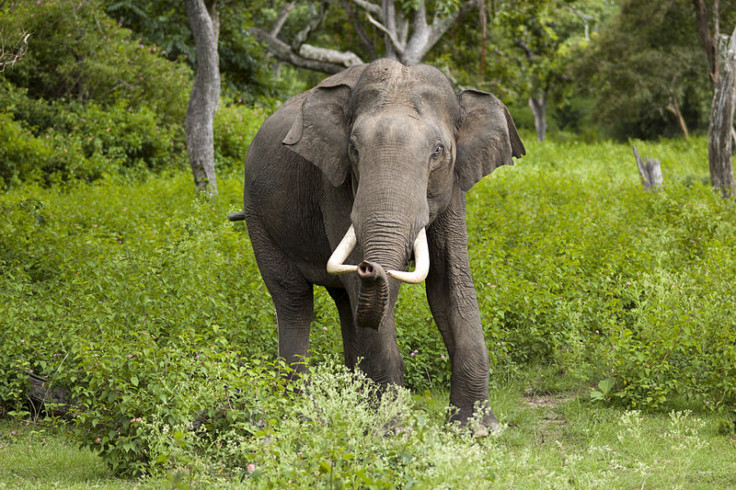28 Elephants Killed By Poachers In Cameroon For Their Ivory; WWF Urges More Action To Stop Poaching

According to reports by the World Wildlife Fund, 28 elephants have been killed for their ivory in the last few weeks in Cameroon. The poaching occurred in Nki National Park and Lobeke National Park, both located in southeast Cameroon, reports Reuters. Poachers killed the elephants in response to the increased demand for ivory in Asia.
Poaching of forest Elephants in Africa has led to a 62 percent reduction of the population in the last decade, reports Reuters. Poachers killed 23 elephants in Nki National Park between Feb. 10 and March 1 and five more of the animals were found in Lobeke National Park. The 28 elephant carcasses were stripped of their tusks. WWF Cameroon representative Zacharie Nzooh said to Reuters, “The poachers used automatic weapons, such as AK-47s, reflecting the violent character of elephant poaching.”
At the current rate of poaching, Cameroon’s forest elephants, with an approximate population of 2,000, could be wiped out within a decade, according to Nzooh. Poachers kill the elephants for their ivory, which is smuggled to Asia and can fetch hundreds of dollars per kilogram, reported Reuters.
On Tuesday, at the Convention on the International Trade of Endangered Species, world governments opted against trade sanctions for several countries that have failed to implement measures to stop the illegal ivory trade within their borders. CITES is an international agreement among 177 countries, including the United States, China, the United Kingdom and Japan to “ensure that international trade in specimens of wild animals and plants does not threaten their survival.”
During CITIES, the governments where discussing possible trade sanctions against Cameroon, Egypt, Ethiopia, Mozambique, Nigeria, Uganda, Democratic Republic of the Congo, Gabon and the Republic of Congo.
Instead of trade sanctions, CITES ordered the countries to develop strategies and identify the steps they will take to control the illegal ivory trade by 2014. According to the WWF, if significant progress is not made, the nine countries could face possible trade sanctions.
Speaking of the decision by CITES, Carlos Drews, director of WWF´s Global Species Program, said in a statement, “We hope that governments will take a stronger stance against these countries considered the biggest problems when it comes to the illegal ivory trade, and that should include much more urgency than we saw today.” The WWF reports that nearly 30,000 elephants are killed each year by poachers for their ivory.
© Copyright IBTimes 2024. All rights reserved.






















